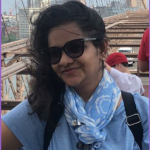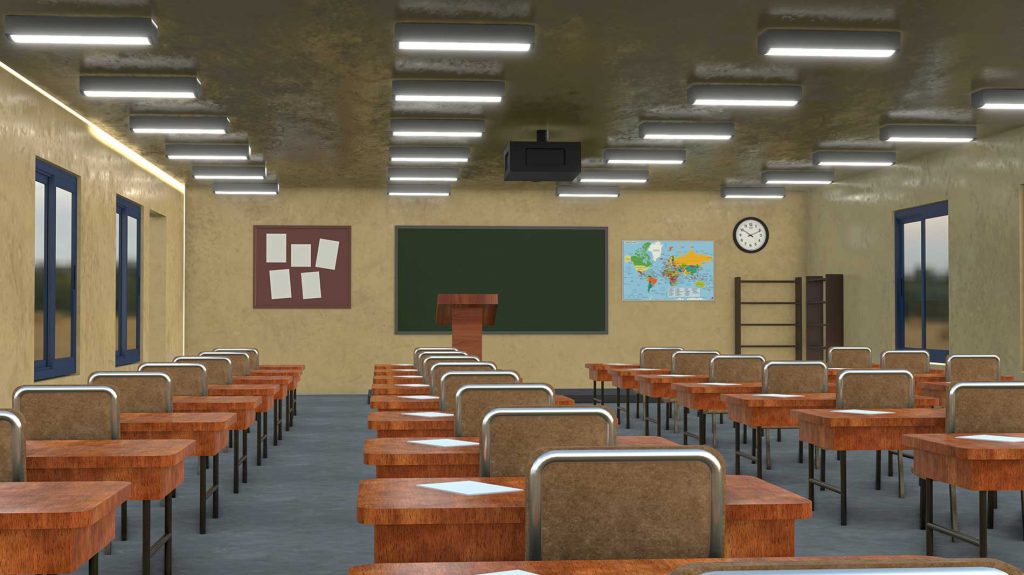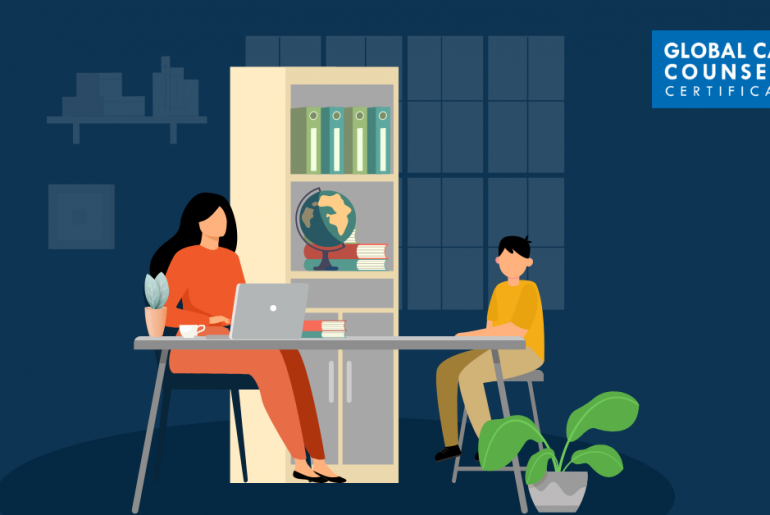Since the modern world is more globalized than ever before, it has become increasingly essential to equip children with “global skills.” Therefore, educational choices these days are not just restricted to choosing a school or stream, but also deciding on the different education boards in India. The following guide provides all the information you need to know how to choose an education board in India.
There are primarily 4 – 5 different education boards in India. Every board has different teaching methods, learning programs, curriculum requirements, assessment criteria, and procedures for conducting tests that contribute to the overall development of students. This article provides a detailed overview of five of the most prominent boards available in the country as well as the tips to choose the right education board, enabling you to compare their features and benefits to decide which one is right for you.
Central Board of Secondary Education (CBSE)
Amongst the different types of education boards in India, CBSE is the most popular national education board for public and private schools which is managed and controlled by the Union Government of India. CBSE has over 24000 affiliated schools spread all over the country, and also has approximately 240 schools in 26 countries around the world.
This board offers various subjects after class 10th in Science, Commerce, Arts/Humanities stream and forms the base for all national entrance examinations, especially Medicine and Engineering domains conducted within the country.
Objective:-
- CBSE curriculum enables students to develop their physical, intellectual, and social skills by integrating innovations in teaching, knowledge, and application. The learning methods are student-centred and incorporate job oriented skill set learning.
Examination:-
- The CBSE conducts two examinations: The all India Secondary School Examination (AISSE) for Class 10 and the All India Senior School Certificate Examination (AISSCE) for Class 12.
Textbooks:-
- The board emphasizes the use of NCERT books, which form the basis for all entrance examinations in India.
Subjects:-
- Some of the major subjects offered by CBSE in 10+2 include Physics, Chemistry, Mathematics, Biology, Accountancy, Business Studies, Economics, English, History, Political Science, Psychology, Geography, and English.
Advantages:-
- In light of CBSE’s extensive presence, parents with transferable jobs or those who are moving between locations have a wide array of options.
- CBSE offers students the freedom to select subjects of their choice from a wide range of subjects (approximately 211).
- Students who wish to pursue schooling in distance mode can also apply for admissions and sit for exams.
- It has also started Continuous Comprehensive Evaluation (CCE) from classes 6 to 10 which aims to test students throughout the year rather than a single exam at the end of the year.
- Exams for entrance to most national universities are based on the CBSE curriculum.
Council for the Indian School Certificate Examinations (CISCE)
CISCE is privately operated and recognized as a non-governmental board of school education by the constitution of India. It was started as a national alternative to the British and American school systems. Over 2300 schools are affiliated with ICSE within India and abroad. The certificates provided by the board are recognized by universities and colleges in India as well as by the international educational boards. ICSE focuses primarily on math and science but also gives equal emphasis to languages, arts, and humanities. This course has been designed to provide practical knowledge and build analytical skills required for the student’s overall development.
Objective:-
- ICSE’s main objective is to provide practical education through high-quality instruction. In class 12th, students are encouraged to choose among diverse streams/subjects by placing equal emphasis on science, arts, and language courses, especially English, consequently, providing a wholesome and inclusive education.
Examination:-
- CISCE conducts three examinations – the Indian Certificate of Secondary Education (ICSE) for Class 10th, the Indian School Certificate (ISC) for Class 12th and the Certificate of Vocational Education Examination (CVE) for students who have completed ISC exams.
Textbooks:-
- For literature in English and other languages, the council prescribes textbooks/study materials but not for other subjects. Thus, schools are free to select the books they find most suitable for competent teaching and efficient learning. Occasionally the council may declare a certain book unsuitable for use in affiliated schools.
Subjects:-
- CISCE subjects and syllabus is more comprehensive and extensive than the CBSE syllabus.
Advantages:-
- CISCE emphasizes more on language and art subjects more and has an application-based curriculum.
- Among the different types of education boards in India, this board can be useful for parents whose work requires them to travel abroad, making it much easier for their children to adapt to different schools.
- The course curriculum provides more flexibility and a wider variety of subjects than CBSE.
- The students can follow any textbook of their choice.
- It focuses more on applied/practical knowledge rather than rote learning.
Also Read: How to Choose the Right Curriculum | Parents vs Students
National Institute of Open Schooling (NIOS)
The National Institute of Open Schooling (NIOS) board of education is an autonomous body that comes under the Ministry of Education (MOE). The NIOS offers life enrichment and vocational and community-oriented courses at the secondary and senior secondary levels. NIOS enrols approximately 3,50,000 students every year, making it one of the world’s largest open schooling systems. It also offers Elementary level courses along with vocational training through its Open Basic Education (OBE) programme for children below 14 years of age and adults above 14 years of age who are eligible to sit for the examinations.
Objective:-
- The main objective of NIOS is to make the educational system versatile and free for all students and increase access to education in remote areas. It is used as a system of education for both children and adults.
Examination:-
- NIOS conducts secondary and post-secondary exams similar to the different types of education boards in India, such as CBSE and ICSE. Additionally, it offers a college education after secondary school. NIOS conducts board exams twice a year.
Textbooks:-
- NCERT and NIOS books are recommended for this board.
Subjects:-
- Open Basic Education (OBE) from classes 3 to 8 covers basic maths, environmental science and computer skills. In class 10 students can choose from 2 basic groups with at least five subjects and a language. In class 12 students can choose between commerce, science and humanities which is further divided into five groups out of which students have to select one or two subjects from each group.
Advantages:-
- It is a child-centred system and enables the student to choose what, how, and when to learn.
- The maximum time a student has to complete their exams is five years.
- This board is beneficial for students who wish to finish their education later in life or who wish to study at their own pace.
- The students can study from anywhere remotely.
International Baccalaureate (IB)
- The IB curriculum aims to provide students with skills to help them grow and develop as successful individuals as well as better learners and people. It offers high quality and challenging educational programmes to students aged 3 to 19. The IB has over 5500 schools across 159 countries. The curriculum is planned upon many theories including language and knowledge acquisition, language and literature, individuals and societies, creativity and service, arts and mathematics. Students are encouraged to think critically, ask the right questions and challenge themselves to think beyond their discipline through the programmes.
- IB offers 4 different types of educational programs.
- Primary Years Programme ( 3-12 years) Through a student-centred approach to education, young students are nurtured and developed as caring, active participants in a lifetime of learning.
- Middle Year Programme (11-16 years) Students are encouraged to make connections between their studies and the real world by using a challenging framework.
- Diploma Programme (16-19 years) The program strives to develop students into well rounded, knowledgeable, emotionally mature, and moral individuals with excellent breadth and depth of knowledge.
- Career-related Programme (16-19 years) The program is designed to meet the needs of students who are pursuing career-related education. Further/higher education can lead to an apprenticeship or employment.
Objective:-
- It emphasizes developing critical thinking and problem-solving skills, as well as fostering diversity, international mindedness, curiosity, and a quest for excellence throughout the program. The curriculum also emphasizes analytical skills, language, arts, and humanities. The objective of the IB board is to create global citizens.
Examination:-
- Two major exams IB Diploma Programme (DP) and Career-related Programme (CP) are conducted in two sessions in November and May every year.
Textbooks:-
- The IB does not prescribe fixed textbooks, so students have a lot of freedom and flexibility in learning.
Subjects:-
- A student can pick one subject from each of six distinct subject groups, allowing ample scope for adaptation. In addition, there are three required subjects that students need to study – Creativity Action Service (CAS), Extended Essays (EE), and Theory of Knowledge (TOK).
Advantages:-
- The IB programme fosters diversity, curiosity and a zest for learning.
- Most universities in the world recognize the IB board.
- The curriculum is skill-based and focuses majorly on arts and humanities and analytical skills, unlike the different education boards in India.
- The focus is on applied knowledge rather than rote learning.
- Students can choose a subject of their choice at the Diploma Program level each from 6 groups.
- This board is apt for students who are looking to go overseas for their college education or with parents that have jobs that may take them abroad or expatriate community members in India.
Cambridge International Education (CIE) OR International General Certificate of Secondary Education (IGCSE)
- Cambridge International Education conducts the IGCSE and AS & A Level exams and is a part of the University of Cambridge. IGCSE is considered to be the largest provider of educational programs across the world. There are more than 10,000 schools affiliated with Cambridge International across 160 countries around the world. Students with CIE credentials are accepted at universities in the United Kingdom (including Oxford and Cambridge), across the United States (including all Ivy League schools), in Canada, in the European Union, in the Middle East and West Asia, as well as in India, Pakistan, Bangladesh and Sri Lanka.
- The Cambridge curriculum begins from Primary, Lower Secondary and Upper Secondary to Advanced which is called the Cambridge Pathway. This pathway gives students a clear path for educational progress from age 5 to 19.
Objective:-
- The main objective of this curriculum is to prepare students for life, build a solid foundation of knowledge, and inspire a lifelong love of learning.
Examination:-
- The main examinations are the IGCSE, the AS level and the A level exams. Cambridge IGCSE exams are conducted in February (India only), May and October, and the results are declared in May, August and January respectively.
- IGCSE exams are conducted at the end of Cambridge Upper Secondary (14 to 16-year-olds), and AS & A Level is conducted at the end of Cambridge Advanced (16 to 19-year-olds).
Textbooks:-
- The IGCSE also does not prescribe any fixed textbooks, so students have a lot of freedom and flexibility in learning.
Subjects:-
- Over 70 subjects are offered at the IGCSE level and over 55 subjects at AS and A levels, making it one of the most flexible education boards among the different types of education boards in India. Students are encouraged to empower their creativity through creative writing, with a strong focus on the English language. There is also an added focus on foreign languages that will benefit the students in the long run.
Advantages:-
- This board uses instructional methods and all instructors are supplied with a lot of resources that are incredibly useful for students. This helps them to learn and develop in a particular way.
- It also promotes creativity at a higher level, encouraging the students to understand outside classrooms.
- Amongst the various different types of education boards in India, this board lets students learn better through practise rather than theory with plenty of choices of subjects.
- It provides an international curriculum to class 9 and 10 students.
State Boards
- Every state in India has a state education department that conducts board exams for classes 10 and 12 and every state has its board and follows its syllabus and grading system. Students preparing for state-level engineering and medical entrance tests can take advantage of this course as it focuses on topics of regional relevance and content relevant to their local area. The syllabus is usually limited in comparison to other boards.
Objective:-
- The state board covers state-level topics of local relevance. It also helps students to prepare for state-level engineering and medical entrance tests the course.
Examination:-
- The State Board conducts two examinations: Secondary School Certificate (SSC) for class 10 students and Higher Secondary School Certificate (HSC) for class 12 students.
Subjects:
- Regional languages and culture are the main subjects and an important part of the syllabus for state boards.
Textbooks:
- Some state boards use NCERT books only to prepare students for the national examinations.
Advantages:-
- Every state in India has its own curriculum.
- The state boards are slightly easier as compared to other different types of education boards in India.
- Students of all levels of ability will be able to succeed through the curriculum.
- Students can score well in public exams.
- Students who wish to score well in class 12 and prepare for competitive exams such as the JEE and NEET can benefit from this board.
There are different education boards in India that students today have the option to choose from when selecting a curriculum. However, knowing how to choose an education board in India correctly can be difficult. The right curriculum may be among the many options available to you, but you must consider various things, including the future goals of your children, extracurricular activities offered, and of course, the cost. I hope you were able to benefit from our tips to choose the right education board for your students.
If you want to help students more effectively, upskilling yourself is the best move.
The Global Career Counsellor Program by Univariety in collaboration with the University of California, Los Angeles (UCLA) Extension is an all-in-one guide to Career Counselling. With over a decade of experience in dealing with students and parents, Univariety found the GAP and collaborated with the University of California, Los Angeles (UCLA) Extension to create an online program for India’s first generation of career counsellors. The Global Career Counsellor program is more than just a counselling course. It is a unique program that has been created to equip individuals with blended learning through world-class instructors, skills and practical training to become career counsellors.
Know More About the Program Here

Ms. Shagufta Mulla
Ms. Shagufta Mulla is a non-practising B. Physiotherapist, a full-time mother, and a housewife from Surat, Gujarat. She is a Green Belt Certified Global Career Counsellor by Univariety and holds a record of participation by UCLA Extension and trying her hands in freelancing career counselling.








